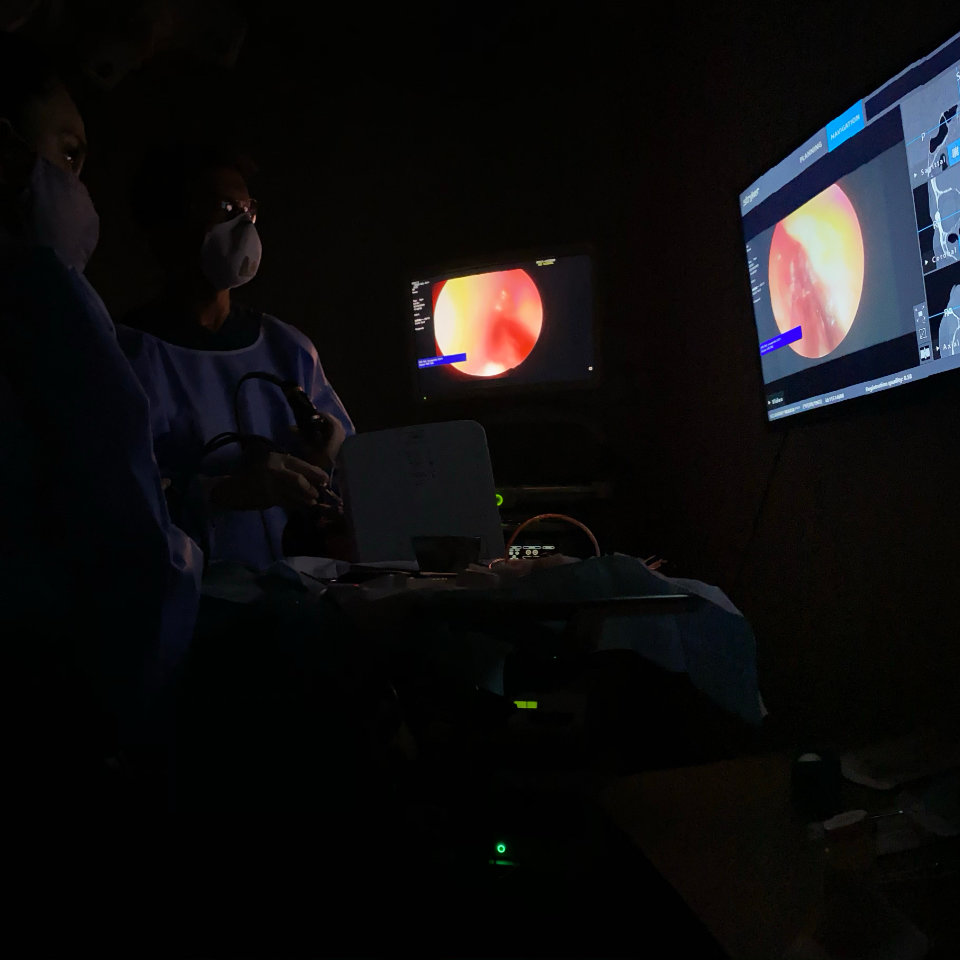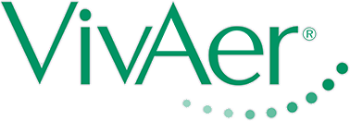When chronic sinus inflammation persists despite medication and other treatments, endoscopic sinus surgery offers a minimally invasive solution with excellent outcomes. This advanced procedure uses specialized instruments to clear blocked sinus pathways, remove inflammatory tissue, and promote proper drainage–all without external incisions. At Integrative Ear, Nose & Throat, Dr. Michael Cohen and his team provide expert endoscopic sinus surgery for patients throughout Long Island, helping them find relief from persistent sinus symptoms and breathe freely again.

Advanced Surgical Expertise for Chronic Sinus Conditions
Dr. Michael Cohen brings over 25 years of specialized experience performing endoscopic sinus procedures. As a board-certified otolaryngologist recognized as a Top Doctor by NY Top Docs for 25 consecutive years, he leads a team at Integrative Ear, Nose & Throat that has successfully treated thousands of patients with complex sinus conditions using the latest minimally invasive techniques.
“For patients with chronic sinusitis that hasn’t responded adequately to medication, endoscopic surgery can be transformative,” explains Dr. Cohen. “By directly addressing anatomical obstructions and removing inflammatory tissue, we can often achieve dramatic improvement in symptoms while maintaining the natural structure and function of the sinuses.” This patient-centered approach is shared by our entire surgical team, emphasizing precision, tissue preservation, and long-term results.
Understanding Endoscopic Sinus Surgery
Endoscopic sinus surgery (ESS) is a specialized procedure that uses a thin, flexible endoscope with a camera to visualize the sinus cavities and nasal passages. This technology allows for precise surgical intervention without external incisions, resulting in less trauma, faster healing, and excellent outcomes.
During the procedure, an endoscope is inserted through the nostrils to gain direct visualization of the sinus anatomy. Using specialized instruments alongside the endoscope, the surgeon removes obstructive tissue, enlarges natural sinus openings (ostia), and clears inflammatory material that blocks proper drainage. The procedure may address multiple sinuses depending on your specific condition, including the maxillary, ethmoid, frontal, and sphenoid sinuses.
Unlike traditional sinus surgery methods that might require external incisions and considerable tissue removal, endoscopic techniques allow for targeted intervention that preserves healthy tissue while addressing problematic areas. The result is more effective drainage, improved medication delivery to the sinuses, and reduced inflammation.
Advanced imaging, including high-resolution CT scanning, enables our team to create a detailed surgical plan customized to your unique sinus anatomy. This image-guided approach ensures precise navigation during surgery and optimal results with minimal impact on surrounding structures.
VivAer® | Nasal Airway Obstruction Treatment | Lasting Relief

VIVAER CAN HELP Get Lasting Relief Right in Your Doctor’s Office with VivAer Some patients respond well to medications, and some can benefit from an invasive surgery. However, medications might only offer temporary relief, and surgery isn’t always the best option for every patient. With VivAer, patients can get significant, lasting relief with a non-invasive, office-friendly treatment.
When Endoscopic Sinus Surgery Is Recommended
Patients throughout Long Island may benefit from endoscopic sinus surgery in several situations:
Persistent Chronic Sinusitis
When sinusitis symptoms continue for more than 12 weeks despite appropriate medical therapy, including antibiotics, nasal steroids, and other medications.
Recurrent Acute Infections
Frequent acute sinus infections (four or more per year) that significantly impact quality of life, even if they respond temporarily to antibiotics.
Nasal Polyps
Inflammatory growths within the sinuses that obstruct normal drainage and breathing, often associated with allergies, asthma, or other inflammatory conditions.
Structural Abnormalities
Anatomical issues such as deviated septum, concha bullosa (enlarged turbinate), or narrow sinus openings that contribute to chronic or recurrent infections.
Fungal Sinusitis
Specialized types of sinusitis involving fungal infections that often require direct removal of fungal material and affected sinus tissue.
Failed Previous Treatments
Inadequate response to comprehensive medical management, including appropriate antibiotic therapy, topical and oral steroids, allergy management, and saline irrigations.
Complications of Sinusitis
Development of serious complications including orbital (eye) involvement, mucoceles, or rare but concerning intracranial complications.
It’s important to understand that endoscopic sinus surgery is not typically considered a first-line treatment for sinusitis. Rather, it becomes an option when medical management alone proves insufficient to control symptoms and improve quality of life.
The Benefits of Modern Endoscopic Techniques
Endoscopic sinus surgery offers numerous advantages over traditional surgical approaches:
No External Incisions
The entire procedure is performed through the nostrils, eliminating visible scarring and reducing postoperative discomfort.
Targeted Precision
The endoscope provides excellent visualization, allowing for precise removal of only the tissue necessary to restore proper sinus function.
Reduced Tissue Trauma
Minimally invasive techniques preserve more healthy tissue, leading to less bleeding, faster healing, and decreased postoperative pain.
Shorter Recovery Time
Most patients return to normal activities within 1-2 weeks, significantly faster than with traditional sinus surgery.
Improved Long-term Outcomes
By addressing the underlying anatomical issues contributing to chronic sinusitis, endoscopic surgery often provides lasting relief and reduces the need for ongoing antibiotic courses.
Enhanced Medication Delivery
Opening blocked sinus pathways allows topical medications to reach deeper into the sinuses after surgery, improving their effectiveness.
Outpatient Procedure
Typically performed on an outpatient basis, allowing patients to return home the same day without requiring overnight hospitalization.
Clinical studies demonstrate that approximately 80-90% of properly selected patients experience significant improvement in their sinus symptoms following endoscopic surgery, with many reporting substantial enhancement in overall quality of life.
Comprehensive Surgical Approach at Integrative Ear, Nose & Throat
Led by Dr. Michael Cohen, our surgical team at Integrative Ear, Nose & Throat follows a meticulous and patient-centered approach to endoscopic sinus surgery:
Advanced Preoperative Planning
Before surgery, a thorough diagnostic evaluation is conducted including:
- Detailed CT imaging to precisely map your sinus anatomy
- Endoscopic examination to assess the extent of disease
- Comprehensive review of previous treatments and their effectiveness
- Allergy evaluation when indicated to address contributing factors
This careful planning ensures that your surgical procedure is precisely tailored to your specific anatomical needs and sinus condition.
Customized Surgical Techniques
During your procedure, our ENT surgeons may use several advanced techniques based on your individual needs:
- Uncinectomy and Middle Meatal Antrostomy: Opening the natural drainage pathway to the maxillary sinus to improve ventilation and drainage.
- Ethmoidectomy: Carefully removing diseased ethmoid air cells while preserving the critical surrounding structures.
- Frontal Sinusotomy: Enlarging the narrow drainage pathway to the frontal sinus to prevent recurrent obstruction.
- Sphenoidotomy: Creating improved access to the sphenoid sinus, which is located deep in the skull base.
- Tissue-Sparing Techniques: Utilizing microdebrider technology and specialized instruments to precisely remove diseased tissue while preserving healthy mucosa.
- Image-Guided Navigation: In complex cases, employing computer-assisted navigation systems that provide real-time confirmation of instrument position relative to critical structures.
- Combination Procedures: When appropriate, performing septoplasty (correction of deviated septum) or turbinate reduction simultaneously to comprehensively address all factors contributing to nasal obstruction.
Postoperative Care Protocols
Following surgery, our team provides personalized recovery guidance, including:
- Specialized saline irrigation techniques to maintain sinus cleanliness
- Endoscopic debridement visits to ensure optimal healing
- Customized medication regimens to reduce inflammation
- Long-term management strategies to prevent recurrence
The Endoscopic Sinus Surgery Experience
Understanding what to expect helps patients approach surgery with confidence:
Before Your Procedure
Dr. Cohen and his team provide comprehensive preparation instructions:
- Medication adjustments, particularly regarding blood thinners
- Preoperative testing as appropriate for your health status
- Detailed explanation of the procedure and recovery process
- Opportunity to address all questions and concerns
During Surgery
The procedure is typically performed under general anesthesia and lasts approximately 60-90 minutes depending on the extent of intervention needed:
- Anesthesia ensures your comfort throughout the procedure
- The endoscope provides magnified visualization of the sinus cavities
- Precise instruments remove obstructive tissue and open drainage pathways
- Absorbable packing materials may be placed to control bleeding and support healing
Recovery Period
Most patients experience a predictable recovery following endoscopic sinus surgery:
- Initial mild to moderate discomfort managed with appropriate pain medication
- Nasal congestion and drainage for the first 1-2 weeks
- Gradual improvement in breathing and sinus symptoms as healing progresses
- Return to work and normal activities typically within 7-10 days
- Complete healing of the sinus lining over 4-6 weeks
Regular follow-up visits allow our ENT specialists to monitor your healing progress, clean the surgical site as needed, and adjust your treatment plan for optimal results.

Frequently Asked Questions About Endoscopic Sinus Surgery
Most patients report mild to moderate discomfort rather than severe pain. Prescription pain medication is typically needed for only a few days, after which over-the-counter options are usually sufficient.
Unlike traditional sinus surgery, modern endoscopic techniques often use minimal absorbable packing materials or none at all. This significantly improves comfort during the recovery period.
While complications are uncommon, potential risks include bleeding, infection, and very rarely, injury to nearby structures such as the eye or brain. Dr. Cohen’s meticulous technique and extensive experience minimize these risks.
Most patients begin experiencing improvement within 2-4 weeks as initial surgical swelling subsides. Full results typically develop over 3-6 months as the sinus tissues completely heal.
Many patients still benefit from some maintenance medications after surgery, though often at reduced doses. Surgery improves the delivery of topical medications, making them more effective.
Most insurance plans cover endoscopic sinus surgery when medical necessity is established through documented chronic sinusitis and failed appropriate medical therapy. Our office staff will verify your coverage before scheduling surgery.
Clinical studies show that approximately 80-90% of properly selected patients experience significant symptom improvement following surgery, with many reporting substantial enhancement in overall quality of life.
Why Choose Integrative ENT for Endoscopic Sinus Surgery
At Integrative ENT, endoscopic sinus surgery is performed by a highly experienced team led by Dr. Michael Cohen, a board-certified ENT specialist with decades of surgical expertise. Together, we deliver patient-centered care with a focus on long-term sinus health and minimal recovery time.
- Dr. Cohen and his team specialize in advanced sinus surgery techniques
- Expertise in minimally invasive and image-guided procedures
- Emphasis on conservative care before recommending surgery
- In-office diagnostics, including nasal endoscopy, for precise planning
- Comprehensive follow-up to support recovery and symptom resolution
- Trusted by patients across Long Island for expert sinus care
Whether you’re facing chronic sinus infections or nasal obstruction, our team provides the experience and support needed for effective surgical outcomes.
Trusted Sinus Care Available Throughout Long Island
If you’re struggling with chronic sinusitis that hasn’t responded adequately to medication, endoscopic sinus surgery may provide the relief you’ve been seeking. Dr. Cohen and his team perform these advanced procedures at premier surgical facilities with state-of-the-art equipment for optimal results.
With convenient office locations in Syosset and Port Jefferson Station, expert sinus care is accessible to residents across Nassau and Suffolk counties. Contact our office today to schedule your consultation and discuss whether endoscopic sinus surgery might be right for you.
